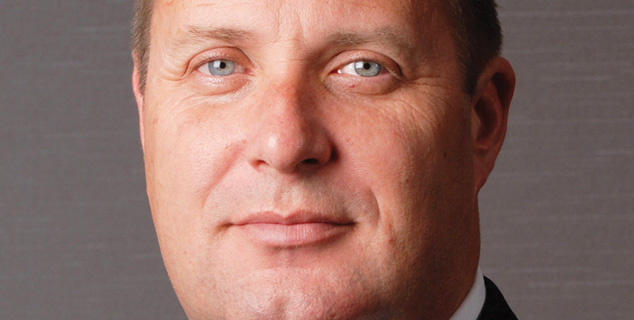
Wisdom has it that London’s junior market, Aim, is “a sad and lonely place, where corporate risk-taking and executive colour has all but been snuffed out”, says the FT. David Lenigas – the Australian miner-turned-entrepreneur who has unleashed the prospect of a “Gatwick gusher” on the British public – gives the lie to that.
Is there really extractable oil in the Surrey and Sussex hills? Lenigas isn’t the doubting type. Asked what the chances are that his Horse Hill venture will come up dry, he replies: “zero”.
Not everyone is persuaded (see below). Lenigas has a reputation for being “very enthusiastic indeed” about his companies: “pouring out his optimism” whenever he can – often prompting speculative excitement across hordes of “penny share” investors.
“Companies in the plural really doesn’t do Lenigas justice.” A directors’ disclosure last year indicated he had sat on 173 boards in the last five years. Recently, that list has been “severely pruned”. He is keen to focus on the “collective of Lenigas-controlled Aim-listed companies he has lined up behind Horse Hill”, notably, UK Oil & Gas.
He’s been labelled “Britain’s JR Ewing”, but Lenigas, 53, “a blunt-speaking bear of a man”, calls himself “just a dumb mining engineer”, says the Mail on Sunday.
He grew up as a ‘bush boy’ in Western Australia in a town so small he says the population shrank to “just two”, when his family of five left. Mining was always a passion. After studying engineering
at Curtin University, he qualified for a mine manager’s certificate, but his early years were a roller coaster, noted The Sydney Morning Herald in 2007.
After the “heady days of the 1980s”, Australian miners hit the “investment wilderness” in the 1990s. Lenigas earned“notoriety” when a gold venture he floated “failed to set the stockmarket alight”.
His big break came when he hooked up with Bangladeshi coal play Asia Energy and joined the hordes of Australian miners heading for London to tap the Aim “nirvana”.
By 2004, when Asia Energy was lauded as the index’s best-performing stock, he’d made himself and his supporters “filthy rich” and there was no stopping him. Lenigas loved “to tool around” Chelsea in his Aston Martin, naming one uranium venture, Brinkley Mining, after his favourite cocktail bar.
Having taken over Lonrho Africa, the shell of Tiny Rowland’s conglomerate, he aimed to move into agriculture, fishing, hotels and air travel, launching African airline Fastjet with Stelios Haji-Ioannou.
Lonrho didn’t work out, and Lenigas ended up selling to Swiss investors with whom he fell out. In the City “he is Marmite”, says the Mail on Sunday. “Some love him, but an equal number express distaste”. Lenigas doesn’t care. “People who don’t like me,” he shrugs, simply “bought their shares at the wrong price.”
100bn barrels of oil or ‘classic self-promotion’?
100bn barrels of oil under the southeast of England? No wonder the claim made “huge waves”, says Simon Watkins in the Mail on Sunday. “Sceptics have scoffed and pointed to Lenigas’ mixed reputation in the Square Mile; environmentalists have been outraged; and the residents of Surrey, Sussex and Kent are doubtless a little nervous.” Lenigas, who has a farm in Oxfordshire and a home in Monaco, admits it would “p**s me off” if his property was exposed to oil drilling.
UK Oil and Gas Investments’ licence covers only a fraction of the area in question, but shareholders were in the money following Lenigas’s claim – extrapolated from a single test well drilled at Horse Hill. Shares jumped 169% to 2.98p. But is he “more hat than cattle, as they say in Texas?” asks Jonathan Guthrie in the FT. It might not be “technically inaccurate” that there are “multiple billion barrels of oil in the ground”.
But even UKOG admitted (on page two of its release) that only 3%-15% of reserves had been recovered in similar US oilfields. The London Stock Exchange demanded it issue a clarifying statement. A pity it wasn’t published “as the shares spiked”.
Many oil analysts are very sceptical. “Classic self-promotion,” was the verdict of Stuart Amor of broker RFC Ambrian. Indeed, few in the penny stock trade can match “Big Dave” for “swagger and audacity”, says Marcus Leroux in The Times. Yet many would argue he’s no worse than any other operator in this space. And he retains “a loyal following among small cap investors”, says Roland Head in The Motley Fool – “and with good reason”.
Last year, shares in two of his companies, Leni Gas & Oil (from which he has resigned) and Rare Earth Minerals, rocketed by 265% and 240% respectively in six months. When Lenigas bets are good, they’re very, very good – at least for those who get in and out at the right time.